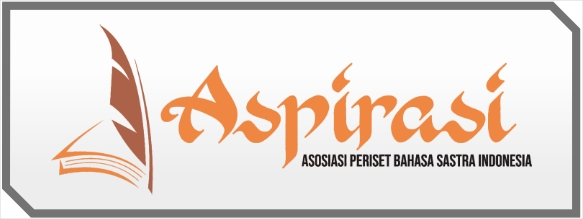Linguistic Credibility in Digital Academia: The Role of Politeness and Hedging in Peer Endorsed Responses
DOI:
https://doi.org/10.61978/lingua.v3i2.996Keywords:
Politeness Strategies, Hedging, Digital Academic Discourse, Persuasion, Stack Exchange, Pragmatic Analysis, Computational LinguisticsAbstract
Politeness and hedging are central in shaping credibility and interpersonal dynamics in online academic communication. This study examines how these strategies affect persuasion in Q&A forums, particularly Academia and CrossValidated communities on Stack Exchange. It aims to measure their influence on persuasive success through three indicators: answer acceptance, scoring, and response timing. Drawing on a corpus of 20,000+ threads, the study applies computational tools to detect politeness markers and hedging terms. The analysis uses mixed effects logistic regression, negative binomial regression, and Cox proportional hazards models, while controlling for user reputation, message length, and thread depth. Results show that politeness and hedging significantly enhance persuasive outcomes. Posts with more polite and mitigative language are more likely to be accepted, receive upvotes, and get faster responses. The effects are stronger for users with lower reputation, indicating that politeness functions as a compensatory strategy in digital peer interactions. The discussion acknowledges the limits of automated detection tools and stresses the role of context, culture, and disciplinary norms in interpreting politeness and hedging. This study concludes that politeness and hedging are essential rhetorical resources in digital academic dialogue. The findings offer practical implications for AI-driven moderation and feedback systems that aim to support inclusive and effective scholarly communication.
References
Afli, H., Barrault, L., & Schwenk, H. (2016). Building and Using Multimodal Comparable Corpora for Machine Translation. Natural Language Engineering, 22(4), 603–625. https://doi.org/10.1017/s1351324916000152 DOI: https://doi.org/10.1017/S1351324916000152
Berber, Ş., Deveciyan, M. T., & Alay, H. K. (2023). Digital Literacy Level and Career Satisfaction of Academics. İnsan Ve Toplum Bilimleri Araştırmaları Dergisi, 12(4), 2363–2387. https://doi.org/10.15869/itobiad.1343893 DOI: https://doi.org/10.15869/itobiad.1343893
Boulianne, S., Oser, J., & Hoffmann, C. P. (2023). Powerless in the Digital Age? A Systematic Review and Meta-Analysis of Political Efficacy and Digital Media Use. New Media & Society, 25(9), 2512–2536. https://doi.org/10.1177/14614448231176519 DOI: https://doi.org/10.1177/14614448231176519
Cortez, S. M. L., & Jacobs, C. L. (2023). Incorporating Annotator Uncertainty Into Representations of Discourse Relations. https://doi.org/10.18653/v1/2023.sigdial-1.49 DOI: https://doi.org/10.18653/v1/2023.sigdial-1.49
Diani, G. (2017). Criticism and Politeness Strategies in Academic Review Discourse: A Contrastive (English-Italian) Corpus-Based Analysis. Kalbotyra, 70, 60–78. https://doi.org/10.15388/klbt.2017.11188 DOI: https://doi.org/10.15388/Klbt.2017.11188
Dolinsky, A. O., Schoonvelde, M., Pipal, C., Baden, C., Lind, F., Shababo, G., Mariken Anna Catharina Geertruida van der Velden, & zalik, avital. (2024). Challenges for Multilingual Computational Text Analysis Researchers: Evidence From a Survey of Social Scientists. https://doi.org/10.31219/osf.io/9mybf DOI: https://doi.org/10.31219/osf.io/9mybf
Dontcheva-Navrátilová, O. (2016). Cross-Cultural Variation in the Use of Hedges and Boosters in Academic Discourse. Prague Journal of English Studies, 5(1), 163–184. https://doi.org/10.1515/pjes-2016-0009 DOI: https://doi.org/10.1515/pjes-2016-0009
Gherdan, M. E. (2019). Hedging in Academic Discourse. Romanian Journal of English Studies, 16(1), 123–127. https://doi.org/10.1515/rjes-2019-0015 DOI: https://doi.org/10.1515/rjes-2019-0015
Halenko, N., & Winder, L. (2022). Openings and Closings in Institutionally-Situated Email Requests. Study Abroad Research in Second Language Acquisition and International Education, 7(1), 54–87. https://doi.org/10.1075/sar.21010.hal DOI: https://doi.org/10.1075/sar.21010.hal
Heidari, E., Mehrvarz, M., Marzooghi, R., & Stoyanov, S. (2021). The Role of Digital Informal Learning in the Relationship Between Students’ Digital Competence and Academic Engagement During the COVID‐19 Pandemic. Journal of Computer Assisted Learning, 37(4), 1154–1166. https://doi.org/10.1111/jcal.12553 DOI: https://doi.org/10.1111/jcal.12553
Johansen, S. H. (2020). A Contrastive Approach to the Types of Hedging Strategies Used in Norwegian and English Informal Spoken Conversations. Contrastive Pragmatics, 2(1), 81–105. https://doi.org/10.1163/26660393-12340006 DOI: https://doi.org/10.1163/26660393-12340006
Koltsova, O., Alexeeva, S., Пашахин, С., & Koltсov, S. (2020). PolSentiLex: Sentiment Detection in Socio-Political Discussions on Russian Social Media. 1–16. https://doi.org/10.1007/978-3-030-59082-6_1 DOI: https://doi.org/10.1007/978-3-030-59082-6_1
Martín, P. A. M. (2022). The Pragmatic Rhetorical Strategy of Hedging in Academic Writing. Vigo International Journal of Applied Linguistics. https://doi.org/10.35869/vial.v0i0.3867 DOI: https://doi.org/10.35869/vial.v0i0.3867
Saputra, J., Yohandoko, S. L. O., & Rusyn, V. (2024). Analysis of Students’ Communication Politeness Capabilities Towards Lecturers in an Academic Environment: Case Study at FKIP Universitas Perjuangan Tasikmalaya. International Journal of Ethno-Sciences and Education Research, 4(1), 18–22. https://doi.org/10.46336/ijeer.v4i1.572 DOI: https://doi.org/10.46336/ijeer.v4i1.572
Waweru-Siika, W., Barasa, A., Wachira, B., Nekyon, D., Karau, B., Juma, F., Wanjiku, G., Otieno, H., Bloomfield, G. S., & Sloth, E. (2020). Building Focused Cardiac Ultrasound Capacity in a Lower Middle-Income Country: A Single Centre Study to Assess Training Impact. African Journal of Emergency Medicine, 10(3), 136–143. https://doi.org/10.1016/j.afjem.2020.04.011 DOI: https://doi.org/10.1016/j.afjem.2020.04.011
Winter, M., Pryss, R., Probst, T., & Reichert, M. (2021). Applying Eye Movement Modeling Examples to Guide Novices’ Attention in the Comprehension of Process Models. Brain Sciences, 11(1), 72. https://doi.org/10.3390/brainsci11010072 DOI: https://doi.org/10.3390/brainsci11010072
Wolf, T., Sebanz, N., & Knoblich, G. (2018). Joint Action Coordination in Expert-Novice Pairs: Can Experts Predict Novices’ Suboptimal Timing? Cognition, 178, 103–108. https://doi.org/10.1016/j.cognition.2018.05.012 DOI: https://doi.org/10.1016/j.cognition.2018.05.012
Zablocki, É., Piwowarski, B., Soulier, L., & Gallinari, P. (2018). Learning Multi-Modal Word Representation Grounded in Visual Context. Proceedings of the Aaai Conference on Artificial Intelligence, 32(1). https://doi.org/10.1609/aaai.v32i1.11939 DOI: https://doi.org/10.1609/aaai.v32i1.11939






